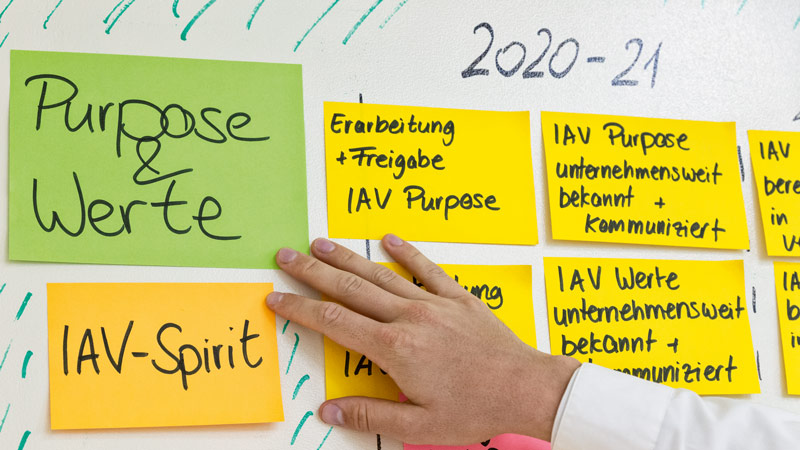IAV Tests Use of WiFi 6 for Remote-Controlled Vehicles in Underground Usage
21.12.2020 —
Berlin, Germany. The BGE has challenging large-scale projects to deal with: Radioactive material is to be retrieved from the former Asse II salt mine in a few years’ time, and low- and medium-level radioactive waste is to be stored in the former Konrad ore mine; the Morsleben repository for low- and medium-level radioactive waste is to be decommissioned; and the site for the repository for high-level radioactive waste is to be found.

The long-term goal is to use teleoperating vehicles and machines controlled from above ground or operated autonomously for suitable purposes in the mines. The current WLAN standard WiFi 6 is to be evaluated as a possible communication technology for this purpose – an undoubtedly interference-free and reliable function is a prerequisite here. IAV has been commissioned by the BGE to demonstrate in a project that the use of teleoperating vehicles using WiFi 6 is technically possible.
For the project, IAV is setting up a test vehicle including a workstation for the control system. To this end, the automotive developer is equipping a scaled vehicle with sensors, control hardware and software and WiFi 6communication technology and installing a control station for remote control. Furthermore, IAV is implementing a control body for communication and recording of measurement data.
“Setting up a test vehicle and integrating it into a corresponding communications infrastructure is now day-to-day business for us as automotive developers of interconnected systems. The appeal of the project stems from the unfamiliar terrain for us and the opportunity to contribute towards the safe operation of underground applications,” says Mirko Taubenreuther, head of the Automated Driving Functions department at IAV. “After initial trials on the surface, we will take the system to around 700 meters underground and test it there in different environments. If the project succeeds, we would have proven that WiFi 6 remote-controlled vehicles can be used safely under the required conditions.”
In light of the complex tasks involved, the BGE’s CTO, Dr. Thomas Lautsch, believes it is essential to implement autonomous systems underground in the long term. “We are feeling our way toward the technology of autonomous operations. The basis for this is a functioning high-performance data transmission infrastructure.”
During tests, IAV engineers will validate, among other things, the propagation of radio waves in different rock environments such as salt, clay rock or ore, the latency, shadowing and signal stall of the WLAN standard WiFi 6 underground. In the process, they will also test whether the system functions without interference at higher travel speeds. In order to be able to make statements about the maximum capacity and availability of the network, specific overloads will also be simulated. The WLAN standard WiFi 6 is currently favored by the BGE as the underground communications technology, as it has been significantly advanced for industrial purposes and its technical specifications, compared to the new mobile communications standard 5G, have already been conclusively published.
Contacts for the media
IAV
Kevin Schrein
Tel.: +49 30 3997-88453
Mobil: +49 172 1901432
E-Mail: kevin.schrein@iav.de
BGE
Monika Hotopp
Tel.: +49 5171 43-1804
Mobil: +49 175 9358597
E-Mail: monika.hotopp@bge.de
About IAV
Employing over 8,000 members of staff, IAV is one of the world’s leading engineering partners to the automotive industry. The company has been developing innovative concepts and technologies for future vehicles for over 35 years, generating sales in excess of € 1 billion in 2019. Its customers include all the world’s prominent car manufacturers and component suppliers. Besides vehicle and powertrain development, IAV entered the segment of electric mobility and autonomous driving at an early stage and is now one of the leading engineering service providers in these fields. In addition to its development centers in Berlin, Gifhorn and Chemnitz/Stollberg, IAV also has further operations in Munich, Sindelfingen and Ingolstadt as well as in Europe, Asia and North and South America.

